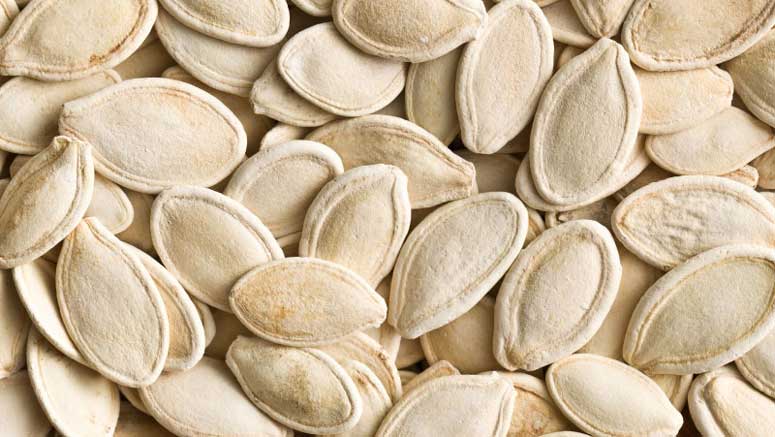Pumpkin seeds, also called “pepitas” in America, are small edible seeds of the pumpkin fruit. These seeds are wrapped in a flat, white outer cover. The light greenish, oval-shaped seeds get exposed once you remove this cover.
Pepitas are crunchy and have a sweet, nutty taste. They can be rinsed, roasted, and eaten immediately after removing them from the pumpkin. You can choose to eat pepitas with or without adding flavors.
Despite their small size, these seeds are packed with a lot of nutrients and health benefits. They are rich in proteins and unsaturated fats like omega-6 fatty acids. [1] They also contain a host of other essential vitamins and minerals, such as calcium, folate, iron, vitamin B2, and beta-carotene. The body converts beta-carotene into vitamin A, which is important for eye health.
This article discusses some health benefits of pumpkin seeds backed by scientific research.
High in Antioxidants

Free radicals are unstable atoms or molecules produced in the body due to increased oxidative stress. [2] These atoms are very reactive and usually cause damage to the cells, DNA, and proteins in the body. They can worsen existing health conditions or contribute to the development of new problems.
Pumpkin seeds are high in antioxidants [3] like carotenoids and vitamin E. [4] These antioxidants reduce oxidative stress and protect your cells from the activities of free radicals. The antioxidant content of pumpkin seeds can help your body fight against many kinds of diseases. [5]
A study in rats suffering from arthritis examined the effects of pumpkin seed oil in relieving inflammation caused by free radicals. [6] The rats given pumpkin seed oil experienced a decrease in inflammation without side effects while rats given normal anti-inflammatory drugs had significant side effects.













